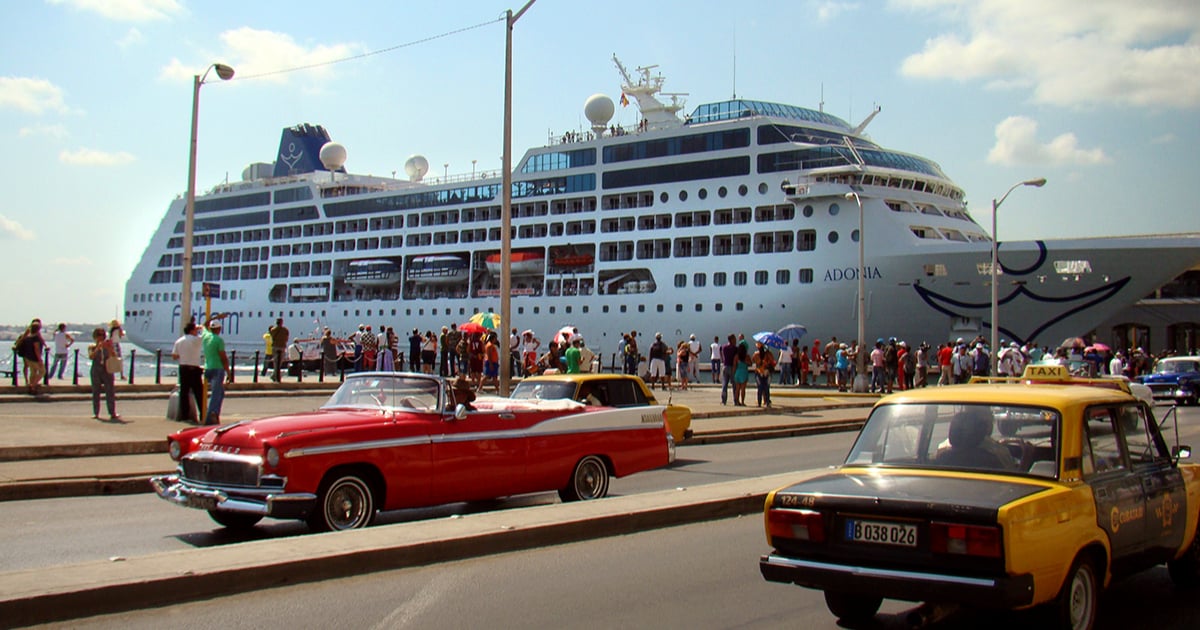
The U.S. Court of Appeals for the 11th Circuit overturned a previous ruling that determined that four major cruise lines - Carnival Corporation, Royal Caribbean Group, MSC Cruises, and Norwegian Cruise Line Holdings - had illegally engaged in tourism to Cuba between 2016 and 2019.
The most recent analyses led to the reversal of the ruling that required the companies to pay 439 million dollars in damages to Havana Docks Corporation for using the docks in Havana, which were confiscated by the island's regime in 1960.
According to Telemundo 51, the court determined that Havana Docks' property rights had expired in 2004, which meant that the activities of the cruise lines did not constitute "illegal trafficking" under U.S. legislation.
This changes the decision of Judge Beth Bloom, issued in March 2022, which stated that the aforementioned companies had to compensate the descendants of the American businessman whose docks were expropriated after the Cuban Revolution, as it considered that those trips did not meet the categories allowed by law.
The judge emphasized that, despite the fact that the Office of Foreign Assets Control (OFAC) had granted licenses to travel to Cuba and that government officials had encouraged these activities, this did not exempt companies from their responsibility if they were involved in prohibited tourism.
"By using the Terminal [port] and one of its docks in various ways, Carnival, MSC SA, Royal Caribbean, and Norwegian committed acts of trafficking under Article 6023 [of the Helms-Burton Act]," he wrote.
In its 168-page ruling, Bloom highlighted that the cruises transported passengers for activities outside the allowed categories and that they struck million-dollar contracts with various agencies of the Cuban government for the use of the terminal and the conducting of excursions.
During their operations, these cruise lines generated over 1,100 million in revenue by offering excursions to nightclubs, tourist sites, rivers, and beaches. However, following the announcement of sanctions in June 2019, they were forced to quickly eliminate stops in Cuba and redirect their ships.
One month before these restrictions, the administration of former president and current Republican candidate for the elections, Donald Trump, decided to activate a provision of the embargo that allowed Americans to sue any company involved in commercial activities related to confiscated properties on the island.
The company Havana Docks Corporation was seeking approximately 9.2 million dollars in compensation, and although the appellate court dismissed the case, the legal process is not completely over, as it may pursue proceedings regarding other claims against Carnival Corporation.
In a joint statement cited by Telemundo 51, MSC Cruises, NCLH, and Royal Caribbean expressed their satisfaction with the court's decision, noting that they appreciate the thorough consideration of the case. For its part, a spokesperson for Carnival Corporation stated: "We are pleased with the outcome and will not make further comments on pending litigation."
This case reflects the lasting impact of the relations between Cuba and the United States, as well as the potential for litigation in the future as companies seek to navigate a changing and complex legal environment.
What do you think?
COMMENTFiled under: